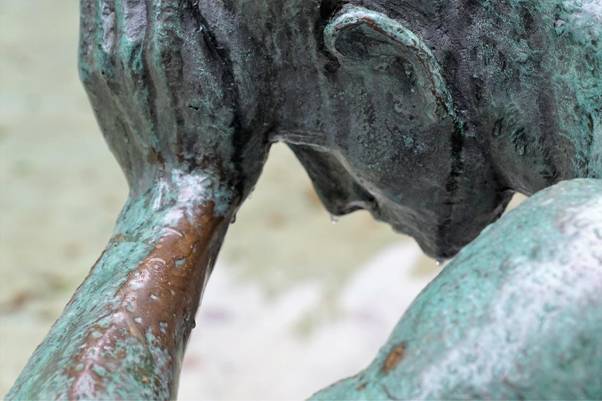Post-Traumatic Stress Disorder (PTSD) is a circumstance that could stand up following exposure to a worrying occasion, leaving individuals with lasting mental and emotional challenges. In this complete guide, we can manual you via the essential standards of PTSD, its signs and symptoms, and the style of remedy alternatives to be had. We aim to equip you with the expertise and tools important to manage and alleviate the signs and symptoms of PTSD, selling recuperation and improving the excellent of life for the ones affected. Whether you’re a healthcare expert, a caregiver, or a person individually experiencing PTSD, this manual is designed to offer valuable insights and sensible techniques for treatment and guidance.
Understanding PTSD and Its Impact on Individuals
Post-traumatic stress disorder is greater than only a reaction to traumatic events; it’s a complex, multifaceted condition that could disrupt one’s sense of normalcy and well-being. Symptoms can also start shortly after the traumatic event or floor years afterward, affecting everyday functioning and relationships. Recognizing its impact is step one closer to effective management.
PTSD now not only impacts the mind but also manifests bodily, with symptoms like insomnia, improved coronary heart charge, and muscle anxiety. It’s a condition that requires a holistic approach to understand the total quantity of its consequences on an individual. By acknowledging the comprehensive nature of PTSD, caregivers can customize greater empathetic and focused treatments.
The road to recuperation from PTSD varies greatly among individuals. It may be a long-term system, replete with challenges and setbacks. However, expertise that PTSD influences every side of a man or woman’s life units the foundation for an adventure in the direction of restoration. The guide of loved ones and experts performs an important role in navigating this route to healing. You can locate inpatient treatment for PTSD and aid groups to be valuable assets in this journey. It is important to remember that recovery from PTSD is possible and, with the right treatment and support, individuals can reclaim agency over their lives.
Symptoms of PTSD
The symptoms of PTSD can be classified into 4 sorts: intrusive memories, avoidance, negative alterations to the questioning and temper qualities, as well as modifications of physical and emotional. Recognition of these signs and symptoms is important for diagnosis and subsequent treatment.
Intrusive memories can include flashbacks and nightmares, even as avoidance commonly entails staying far from locations, activities, or objects that are reminders of disturbing enjoyment.
Negative modifications in wondering and mood can appear as distorted feelings like guilt or blame, loss of interest in formerly fun activities, and emotional numbness. These symptoms may lead to extreme feelings of dejection and as such, make it difficult for the individuals concerned to maintain permanent ties. Recognizing those symptoms is crucial to understanding how PTSD affects an individual’s livelihood.
Practical Strategies for Treating PTSD
Treating PTSD requires a selection of different therapeutic approaches based on the character’s preferences. Cognitive Behavioral Therapy (CBT) is widely considered an effective treatment for PTSD, in addressing the links between mind, emotion, and behavior. Individuals in CBT learn to replace distressed thought patterns and responses to distressful memories.
Another treatment-based approach that presents promising effects is Eye Movement Desensitization and Reprocessing. This remedy makes use of guided eye movements to assist manner and adjust emotional reactions to annoying memories. The aim is for the character to have an extra nonviolent association with these memories over time.
Medication also contributes to the management of PTSD symptoms and SSRIs are the most commonly prescribed. Such medications help to relieve symptoms of depression and anxiety that are often associated with PTSD. It is critical to consult with a scientific professional to decide the first-rate pharmaceutical technique, alongside psychotherapy, for treating PTSD.
The Role of Support Networks in PTSD Recovery
Recovery from PTSD is rarely an isolated manner; it calls for sturdy support networks that include a circle of relatives, friends, and healthcare professionals. The assistance of loved ones is paramount, providing knowledge, care, and companionship via the recuperation adventure. They can offer an experience of protection and stability that is vital for those dwelling with PTSD.
Healthcare specialists, consisting of psychotherapists and counselors, contribute to specialized information and remedy modalities crucial for managing PTSD. These individuals form the spine of a healing support network, providing steering and medical interventions that are tailor-made to the character’s reports and signs.
PTSD in Children and Adolescents: Special Considerations
Children and teenagers who enjoy PTSD can showcase signs in a different way from adults. Younger individuals may have extra trouble articulating their feelings and may have explicit signs and symptoms through play or behavioral changes. Recognizing and responding to these symptoms is vital to addressing their desires efficiently.
Educators and parents must note that modifications in instructional overall performance, shifts in social conduct, or regression to advanced developmental levels may also imply trauma-related strain. Specialized remedies, together with play remedies, can provide age-suitable strategies for children to technique their reviews and express their feelings.
Advances in PTSD Research
New studies are raising new ways of understanding and treating PTSD, which can transform the entire treatment landscape. Research into the genetic and neurobiological foundations of PTSD is shedding light on this disorder, which may open up more personalized yet powerful treatments.
Novel methods, along with virtual reality publicity therapy, are being explored and might revolutionize the manner traumatic memories are processed. This generation affords controlled environments wherein individuals can confront and paint their traumas under the near supervision of a therapist.
Building Resilience
While it’s not always possible to save you from PTSD, building resilience can play a good-sized function in mitigating the severity of its onset. Resilience education can equip people with the psychological equipment to handle strain greater efficiently, potentially lowering the impact of demanding activities.
Programs designed to reinforce coping strategies, enhance hassle-fixing abilities, and foster a growth mindset can prepare individuals to stand adversity with a better intellectual framework. Such schooling is mainly useful for professionals working in excessive-stress environments like military employees, first responders, and healthcare employees.
Furthermore, early intervention following the publicity of worrying events may be crucial in preventing the improvement of PTSD. The availability of activated mental aid, in the form of counseling or debriefing, can help individuals technique the trauma and decrease the chance of long-term mental distress.
Community and Societal Efforts to Support PTSD Sufferers
The understanding and treatment of PTSD increase past the clinical setting and into the wider network. Public recognition campaigns play a vital role in destigmatizing the disease, encouraging individuals to seek help, and fostering supportive surroundings for restoration.
Community-led applications can provide neighborhood assets, including workshops, seminars, and guide corporations, that provide schooling and social support for PTSD patients and their families. These tasks can also bridge the gap among medical offerings and the network, ensuring that the ones affected by PTSD have access to to comprehensive guide.
In conclusion, PTSD is a complicated circumstance that requires a multi-faceted technique for effective control. By knowing its impact, spotting symptoms, and utilizing various remedies and assistance networks, people can work closer to healing and regaining management in their lives. With ongoing studies and community efforts, we will continue to improve our expertise and treatment of PTSD, imparting hope for the ones residing with this difficult ailment.


